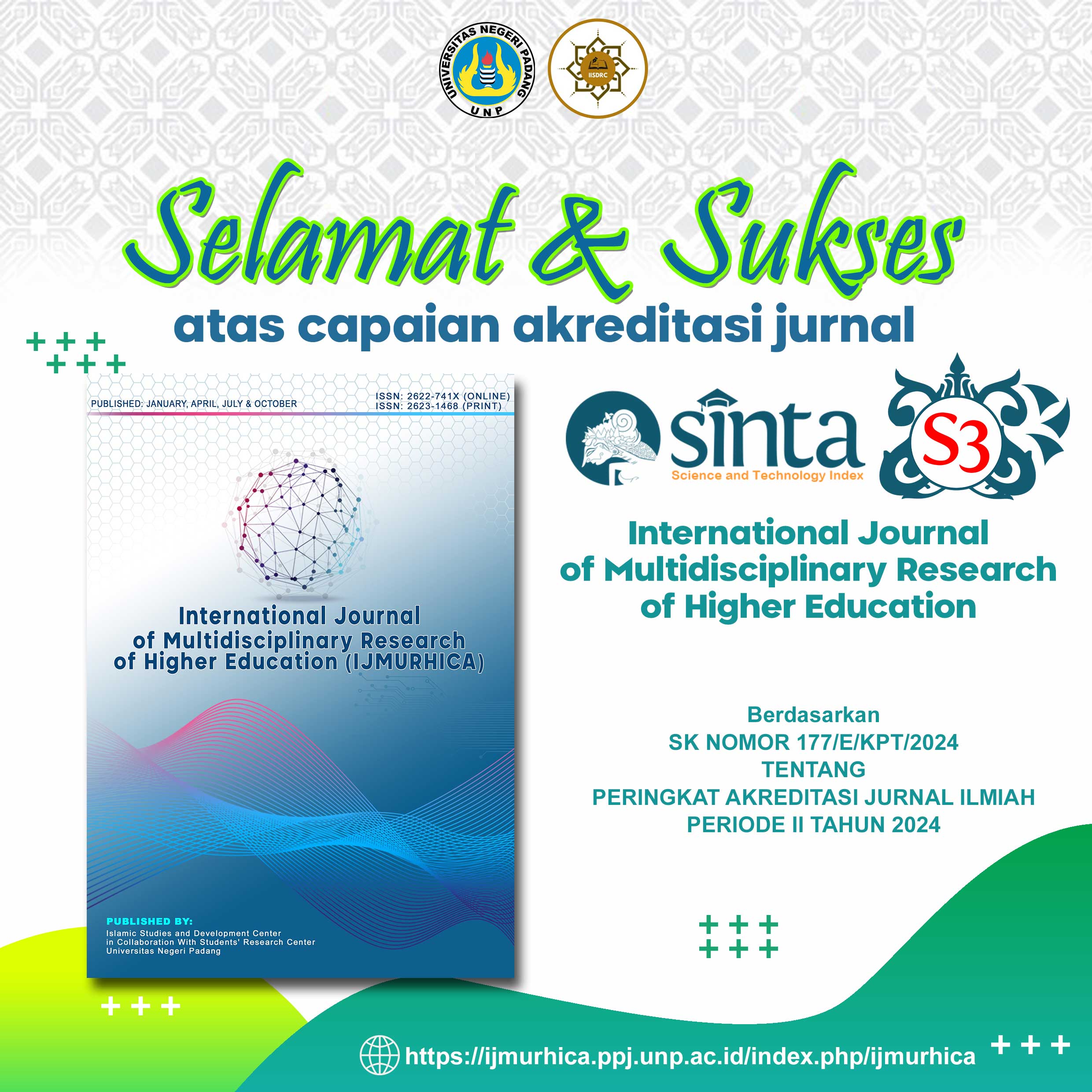Inhibiting Factors of Mosque Management in Increasing the Intensity of Congregational Prayers in the Community
DOI:
https://doi.org/10.24036/ijmurhica.v3i4.201Keywords:
Inhibiting factors, mosque management, congregational subuh prayersAbstract
Prospering the mosque by reviving congregational prayers is part of the symbols of Islam. However, increasing the intensity of congregational prayers has its own obstacles for mosque administrators. This study aims to analyze whether the cause of the community is not performing the Subuh prayer in congregation at the mosque. This study uses a qualitative method with a phenomenological approach. Sources of data were taken from five informants through in-depth interviews consisting of two mosque administrators and three mosque congregations who were selected using a purposive sampling technique. All interview results were analyzed using techniques Analysis Interactive Model Milles & Huberman. The results of the analysis show that there are four inhibiting factors for the community not to perform the Subuh prayer in congregation at the mosque. The four inhibiting factors are i) Difficulty getting up early, ii) The distance to the mosque is too far, iii) There is no habit of praying at dawn in congregation at the mosque, iv) Being busy at work. The results of this study can be used as initial data for future researchers to examine this issue in different contexts and issues.






